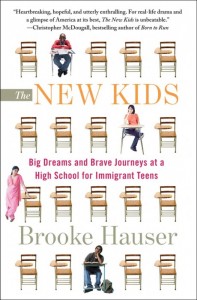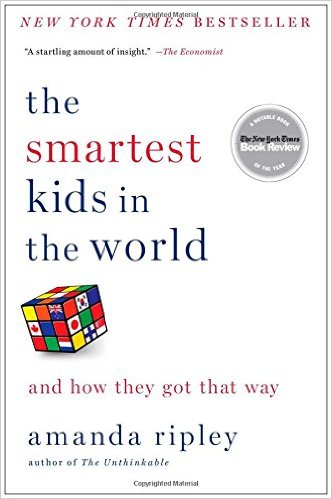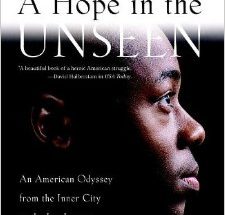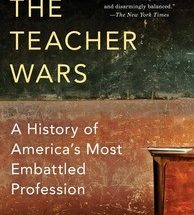 The high school kids at International High School go to prom in a limo. They kiss their boyfriends and girlfriends in the hall, experiment with hairstyles, struggle over college applications, and carefully select the most desirable table at lunch time.
The high school kids at International High School go to prom in a limo. They kiss their boyfriends and girlfriends in the hall, experiment with hairstyles, struggle over college applications, and carefully select the most desirable table at lunch time.
But the immigrant teens who dance and trip off the pages of The New Kids have another, not-so-typical side. They have arrived in the U.S. after crossing borders in the trunk of a car or following the dreams of their parents. They might live alone, sleep on the floor of a dirty apartment, or be the sole guardian of their younger brother and sister. But they still take their standardized tests, visit the guidance counselor and write essays about The Diary of Anne Frank.
Brooke Hauser, a New York-based journalist and Miami native, weaves a detailed web of International High School stories. Her reporting is impeccable, leading us through the chaotic interplay of home life, classrooms and dreams. The effect is a quick-paced book with the plot of a fiction novel and the unnerving truth about immigration. Her writing is casual and clear, if sometimes painfully overdressed to the point of cheesy, as she takes us through the living yearbook.
The author chose her sources well, and the characters undergo visible changes, both personally and academically. At the core of the book, Mohammed Bah, a charismatic boy from Sierra Leone, transitions from his rural village to a working class African bachelor pad to his own teacher’s home. Yasmeen, a Yemeni orphan, raises her younger siblings while applying for colleges and being coaxed into marrying her first cousin. Jessica, a Chinese girl, is the picture of a serious student with her eyes set on college, but has been ousted from her family by her father’s new wife.
If there is a message in The New Kids, it is carefully tucked into the voices of the teachers, staff and students. Hauser succeeds in allowing their stories to speak to today’s salient immigration issues in the U.S. – documentation, deportation, child labor, and an achievement gap that even a supportive educational environment can’t sew together. She is restrained in her own opinion, providing both sides of the story convincingly – from Jessica’s father, who sneaks in to her apartment to cook her dinner, to Yasmeen’s extended family, whose decision about her marriage helps the quiet high school senior remain in the U.S. and go to college.
As a comment on education, the book details the inspiring investment of the staff at International, but makes it clear that the system fails many students. While five students receive full scholarships to college, others leave school or continue to work at the local supermarket. The New Kids may read like a lighthearted bildungsroman, but it acts as an unforgettable testament to America’s tossed salad of citizens, as one teacher explains, who remain distinct, sometimes harshly so, as they attempt to obtain an American life of comfort and stability.



